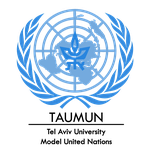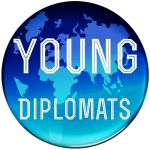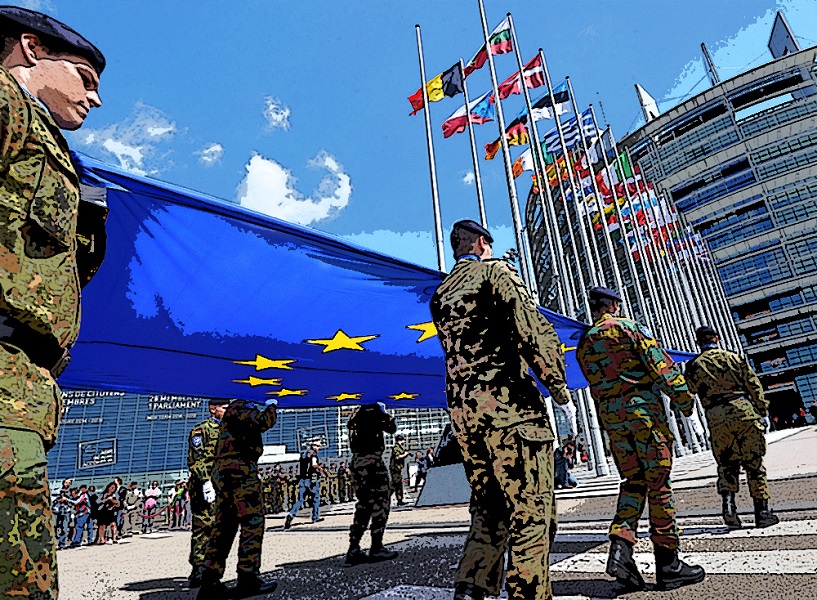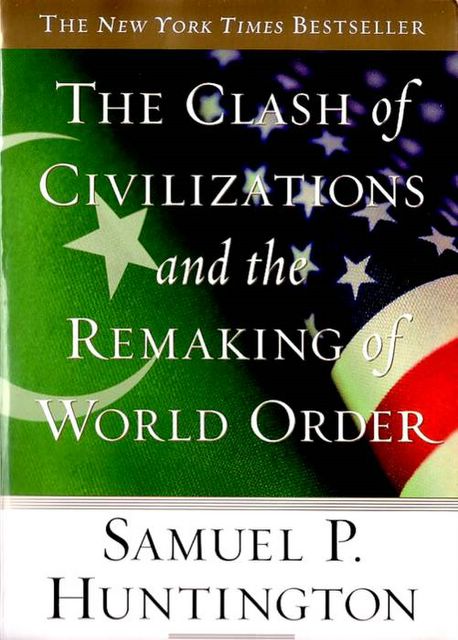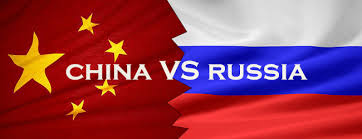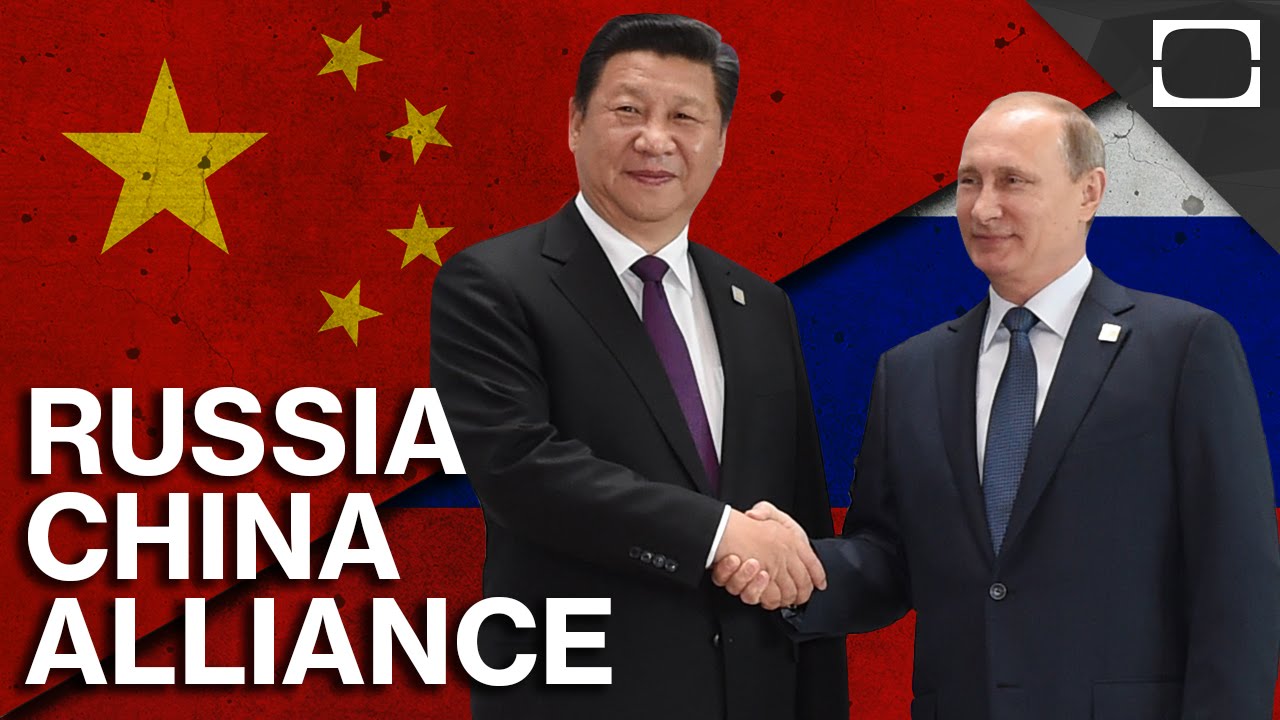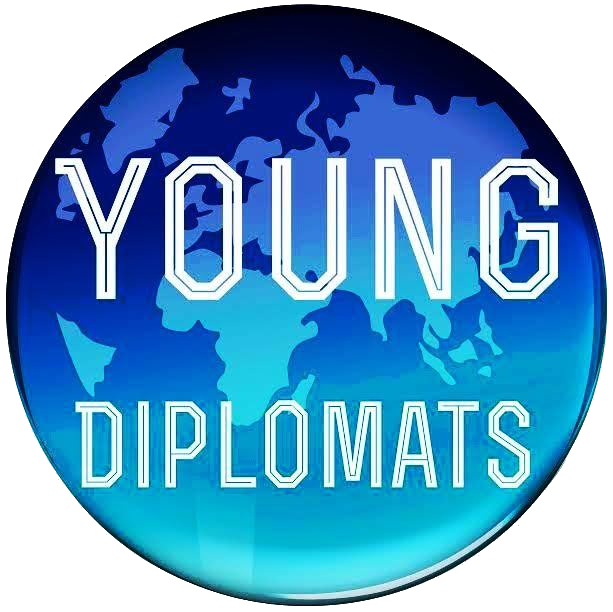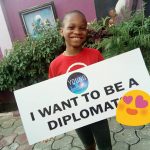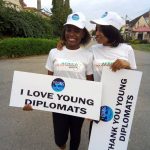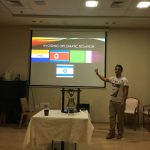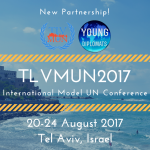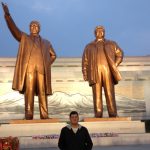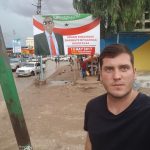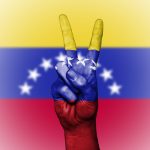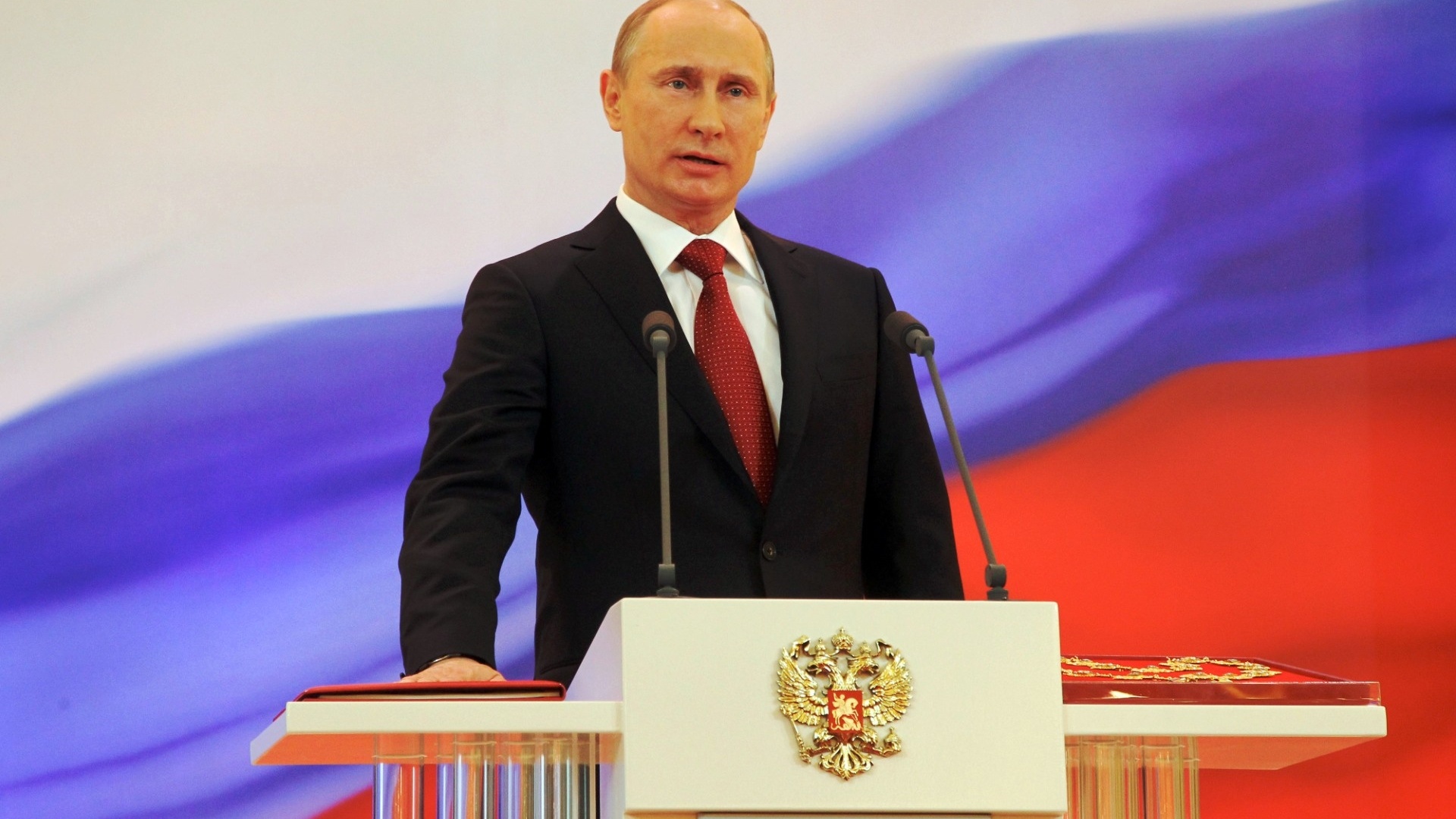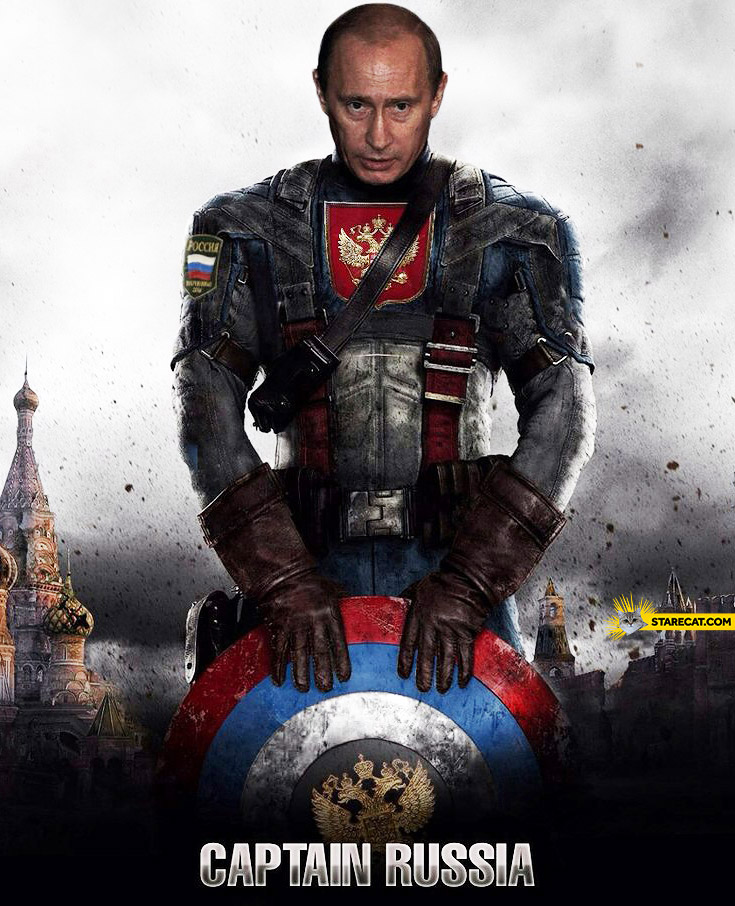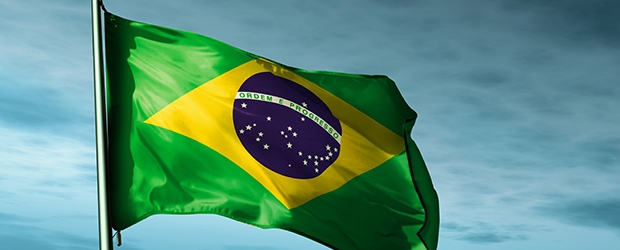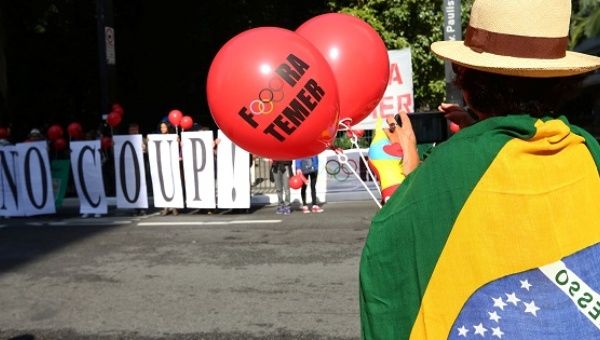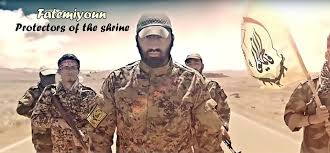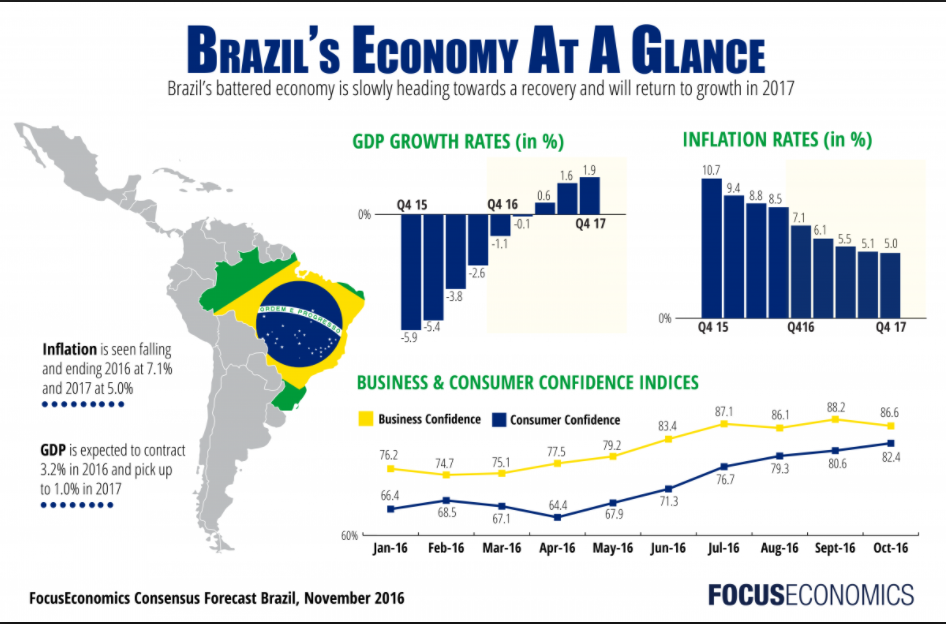Japanese military normalization and collective self-defense under a Trump Presidency
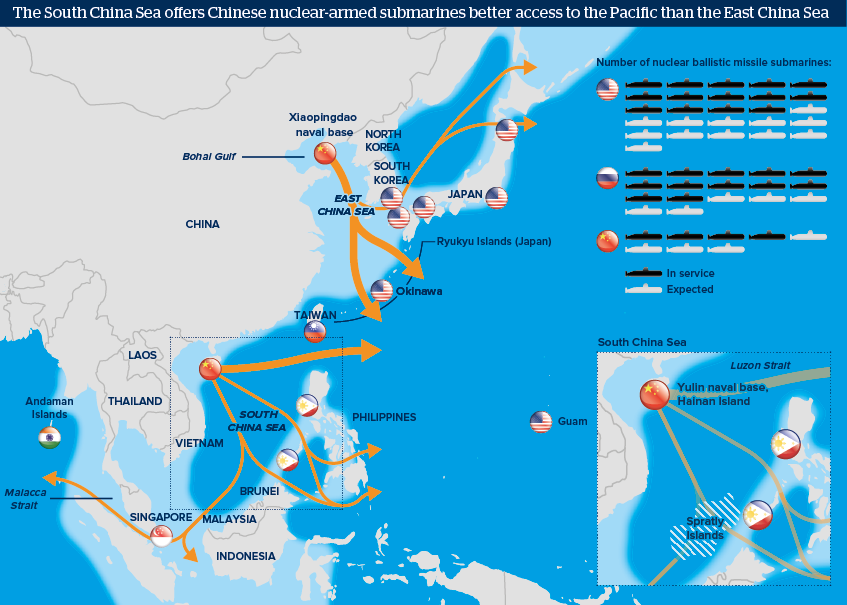
Understanding the pacificst charater of the Japanese Constitution
When the constitution of Japan came into effect in 1947, it marked the end of a remarkable period of Japanese history. Less than a century before, Japan was an isolated feudal state under the military dictatorship of the Tokugawa Shogun. In 1853, American warships forced the end of Japan’s isolationist foreign policy. The emperor of Japan emerged victorious from a civil war with the Shogunate and within a few decades, Japan rapidly westernized itself and became an imperialist great power. It aggressively expanded in Asia after 1930 and at its height held or dominated Korea, Manchuria, Indochina and South-east Asia. After fighting alongside Germany in the Second World War, it surrendered to the United States after nuclear weapons were dropped on Hiroshima and Nagasaki (Fisher 187-190). After a short period of American occupancy, Japan gained independence again and its new constitution marked Japan’s rebirth as a modern, democratic country.
This backstory is necessary to understand the pacifist character of the Japanese constitution.
This backstory is necessary to understand the pacifist character of the Japanese constitution. It does not permit the building and maintenance of a military and does not extend the right to self-defense to the Japanese state: “In order to accomplish the aim of the preceding paragraph, land, sea, and air forces, as well as another war potential, will never be maintained. The right of belligerency of the state will not be recognized” (Constitution of Japan). In light of the uncompromised pacifism of Article 9, it is thus a peculiar situation that Japan maintains the world’s seventh-most effective military (as of 2016, according to the Global Firepower Index).
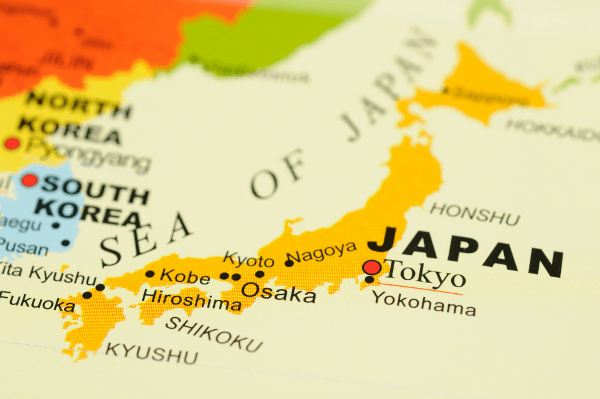
After Japan entered a bilateral alliance with the United States in 1951 and the systemic rivalry of the Cold War became obvious, the United States needed a rearmed Japan to counter the communist bloc from the east. Between 1950 and 1954 Japan gradually rebuilt military potential and in 1954, the Japanese Self-Defence Forces were officially established as Japan’s de facto army and navy (Simpson).
The attacks on the World Trade Center accelerated Japanese military normalization
The attacks on the World Trade Center accelerated Japanese military normalization: After October 2001 the Japanese navy was allowed to support (but not defend) US-American warships in the Indian Ocean and in 2003 Japan despatched a contingent of non-fighting soldiers to Iraq (Kido 124-125, Hirata 132). In March 2016 PM Abe Shinzo’s government reinterpreted the pacifist Article 9 to allow for collective self-defence alongside Japan’s allies (Mason).
Japan Geopolitical Environment in 2017
At the end of 2017, Japan’s situation in its regional environment is uncertain. It is embroiled in territorial disputes with Russia, the Koreas, the Chinas and the alliance with the US can no longer be viewed as a dependable centrepiece of Japanese security policy: Japan was shocked by Donald Trump’s critical comments on the burden-sharing of the security treaty as well as his suggestion of a possible nuclear rearmament of Japan (Basu). Although Japan’s fears were alleviated when the president-elect met with Shinzo Abe on November 17th 2016 and reaffirmed the Japanese-American partnership, the future of US-American unconditional defence of Japan and Japanese interests remains unclear under a Trump presidency (Basu). When the president visited Japan on his Asian tour, he reiterated his demand for an increased share of the burden for Japan .
Three credible scenarios for the future of the Japanese-American alliance
There are three credible scenarios for the future of the Japanese-American alliance: The best-case scenario (for Japan) would be a continuation and affirmation of the US commitment to defend Japan without any adjustments, as just recently professed in the Joint Statement of the Security Consultative Committee meeting in April 2015 (Basu, US Department of State). A second, less beneficial scenario would be a continuation of the security treaty including a renegotiation of financial and military burden-sharing. This scenario is likely due to Trump’s apparent dissatisfaction with the asymmetry of the alliance (Johnson). The worst-case scenario would be a retraction of the US commitment to defend Japan or even a dissolution of the Japanese-American security treaty. Although the dissolution of the 56-year old alliance seems highly unlikely, Trump’s disparaging comments on the treaty and his political inexperience make his future foreign policy incalculable and hard to predict (Mie March 2016).
Japanese military normalisation and the adoption of collective self-defence is a necessary step to ensure Japanese security
This essay argues that regardless of the scenario that occurs, Japanese military normalisation and the adoption of collective self-defence is a necessary step to ensure Japanese security. It presents three arguments in favour of this: First, assuming that Trump follows through with his re-examination of the burden-sharing within the security treaty, Japan needs to be able to assume more responsibility alongside the United States. Second, irrespective of president Trump’s actual future policy concerning Japan and the bilateral treaty, Japan needs to have full access to its military without being hampered by its own constitution. Third, Japan must normalise itself to defend its contested territorial claims and deter potential attackers.
Trump and Japan
During President Trump’s time as candidate, he made several remarks that challenged the current asymmetry between the US and its allies in the NATO as well as Japan and he continued this rhetoric as president. He criticised both the continental allies in Europe and Japan for putting the onus of defence and military spending on the US, even going so far as saying that Japan “doesn’t have to do anything” according to their alliance (Ryūichi). Yet despite the softening of Trump’s position following his meeting with PM Abe in New York, concerns continue to be voiced in Japan (and South Korea, for that matter) concerning the future of the alliance. Former Japanese minister of defence Ishiba Shigeru opined that “Japan can’t just sit back and do what it’s told to do by the United States.” (Shorrock)
Japan can’t just sit back and do what it’s told to do by the United States.”
So, in the wake of questioning of the status quo, Japan needs to make itself indispensable as a security partner for the United States. Financially, the burden is almost equally shared by both partners: Japan pays 48.3% of the cost of stationing US troops on Okinawa and the Japanese mainland and even contributed to the cost of relocating 4.000 US soldiers to the US base of Guam (Basu). Yet Trump (as candidate) was critical even of that Solomonic apportionment of cost, demanding that Japan foots the whole bill for US deployment in Japan (Johnson). Although this election campaign rhetoric will probably not translate into policy, it is not clear how the security treaty will evolve under a Trump administration. Possibilities include allocating a greater portion of the cost to Japan or withdrawing some troops from bases in Japan to delegate some defensive responsibility to the Japanese Self-Defence Forces (Deb).
In late December 2016, the Japanese diet adopted guidelines governing the application of collective self-defence in so called “grey zone security situations” that “do not amount to armed attacks” (The Japan News). Although these guidelines stop short of permitting the defence of allied vassals against attacks, they are an important stepping stone towards actual collective defence and reflective of Japan’s acceptance of a change in its alliance with the United States: Japan needs to strengthen and enhance its attractivity as a security partner for the USA, and part of that process is collective self-defence.
Marian Blok
Marian Blok is a member of Tel Aviv University Model United Nations. A Young Diplomats Partner.


